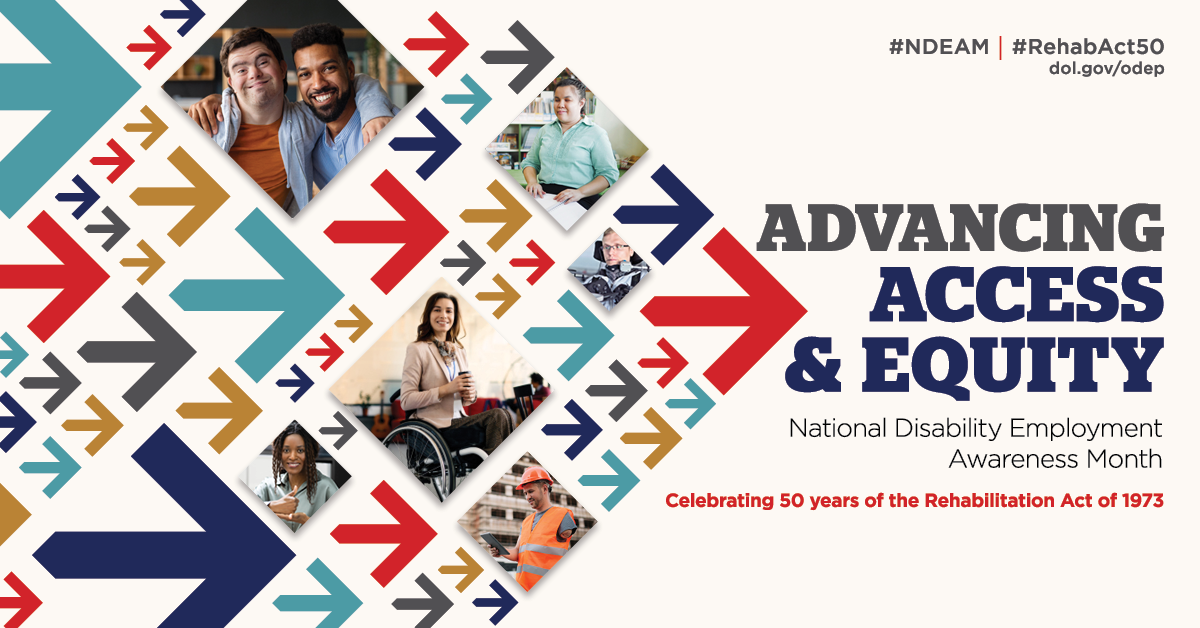By Kevin McDaniel, Statewide Equity Manager - Accessibility (DPA)
This October, the Statewide Equity Office celebrates 50 years of disability employment awareness, countless innovations inspired by accessibility, and the National Disability Employment Awareness Month (NDEAM).
The World Health Organization estimates that there are roughly 240 million children with disabilities who require some type of assistive technology to access the services they need. This represents about 3.6% of the global population. In Colorado, this means that roughly 200,000 children and over 400,000 adults with disabilities rely on assistive technology to live their lives independently.
NDEAM exists to celebrate the contributions of our nation’s workers with disabilities and showcase the benefits of inclusive employment practices. The theme for 2023’s NDEAM is advancing access and equity.
Braille from the Battlefield
Over 200 years ago, Napoleon Bonaparte’s army was struggling to communicate at night. To solve this issue, Charles Barbier proposed a system of writing called night writing. This writing system used raised characters on wax paper. Soldiers would run their fingers along the characters, allowing them to communicate information silently and without light.
Barbier pushed for the universal implementation of the night writing system with Napoleon, but it was never fully accepted due to the recording process. To create any communication, it required the use of torches and, ultimately, was regarded as too impractical for use on the battlefield by French commanders. Thankfully, the idea of communicating with raised characters did not die out. Night writing still served a revolutionary purpose.
Louis Braille, a follower of Barbier and student of his night writing system, spent the next 25 years perfecting it, capitalizing on the fact that the army couldn’t find use for an after-hours communication system, and ultimately became the author of modern Braille. He maintained that credit was owed to Barbier throughout his life.
Embracing Accessibility Fosters Innovation
In 1972, chef and former World War II typist, Julia Child, introduced open captions to America on her wildly popular PBS program, The French Chef, after learning about the technology at the First National Conference for Television in 1971.
In many ways, it’s fitting that Child, a lifelong learner and lover of languages, was the first to debut captioning technology. She began her cooking career translating French recipes into English and vice versa before leaving Europe after the war. She was truly an innovator of her time.
Today, closed captions are required by the Federal Communications Commission and millions of people with visual disabilities can rely on technologies like keyboards and Braille to interact with the world around them.
In fact, if you’ve ever asked Alexa or SIRI to add something to your shopping list or create a calendar invite, you’re utilizing technology developed for individuals with limited mobility.
Did you know? The typewriter was developed for Italian Countess Carolina Fantoni da Fivizzano, a blind woman.
Braille, captions, electric toothbrushes, bendy straws, audiobooks, and even the keyboard I’m typing this story with, a child of the typewriter, are innovations born from the spirit of accommodation and were created by or for persons with disabilities. They’ve also improved access and literacy across the globe. Accessibility and equity are innovation.
Celebrating Access and Equity
Today we are working toward our own objective: to improve access to the State’s programs, services, activities, and technologies, regardless of language or ability. The scope is overwhelming, but the importance is indisputable.
As we continue to move the State forward and solidify our maturity in accessibility, it’s important that we recognize the need for access and equity. Accessibility is not a destination; it is a value, a shift in our culture. History shows us the great things that come from accommodations related to accessibility. If we embrace the work, we can truly capitalize on all of the innovative benefits that come with a service-centric approach and improve access for all Coloradans.
Please join the Statewide Equity Office this October in celebrating the strides to improve access for persons with disabilities and continuing our work to remove barriers for all residents of our great state.
